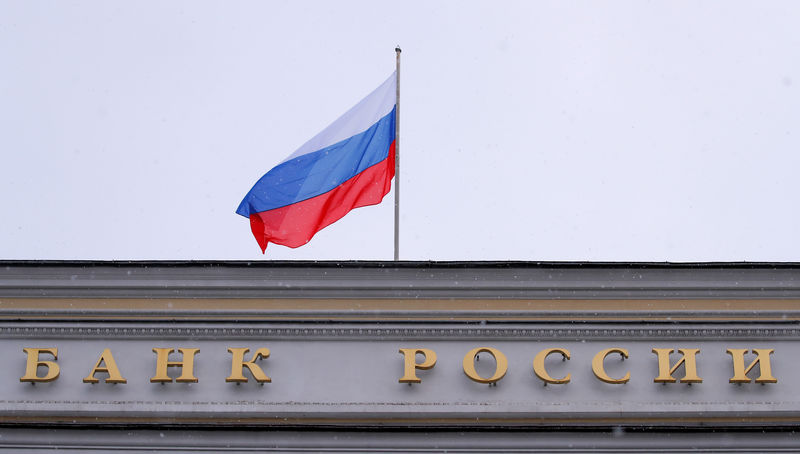By Andrey Ostroukh
MOSCOW (Reuters) - The Russian central bank cut its key interest rate to 7% on Friday, lowering the cost of borrowing for the third time this year, and said another rate cut was possible at one of the next three board meetings.
The rate cut comes amid slowing inflation - the central bank's key area of responsibility - and sluggish economic growth, which prompted the central bank to lower its gross domestic product forecasts.
A majority of 25 analysts and economists who took part in a Reuters poll had predicted the central bank would trim the rate by 25 basis points.
The move takes the key rate to the upper boundary of the 6%-7% range that the central bank sees as neutral from the point of view of its monetary policy, which is aimed at keeping annual consumer inflation near its 4% target.
Inflation has already slowed to 4.3% in August, prompting the central bank to lower its year-end inflation forecast to 4.0%-4.5% from 4.2%-4.7%.
Governor Elvira Nabiullina, presenting the rate decision, said the central bank will consider lowering the key rate again soon, declining to comment on whether that the bank may be ready to trim the rate both at its next board meeting in October and then in December.
"A lowering of the key rate is likely at one of the upcoming meetings," Nabiullina said.
Nabiullina cemented expectations of rate cuts earlier this year when she told Reuters the bank would like to complete the rate-cutting cycle by mid-2020, trimming the key rate in small steps.
The rouble firmed after the rate cut to 65.71 versus the dollar as of 1335 GMT from a level of around 66 versus the dollar seen before the rate cut .
The central bank on Friday also revised its forecasts, lowering its 2019 economic growth projection to 0.8%-1.3% from an earlier expected 1.0%-1.5%.
"An important external factor is a slowdown in growth of the global economy, which has proven more tangible than expected due to, among other things, the growing contradictions in international trade," Nabiullina said of risks to the Russian economy.
Analysts took the central bank's message as an indication that it will lower its main interest rate but not aggressively.
"We think the CBR is hinting that the pace of easing will slow – it won't cut at every upcoming meeting – rather than that it is bringing the easing cycle to an end," Capital Economics research firm said in a note.
"We expect the key rate to be lowered to 6.75% in December and to 6.5% by the end of the first quarter of 2020," said Alexander Isakov, economist at VTB Capital.

The next rate-setting meeting is scheduled for Oct. 25.